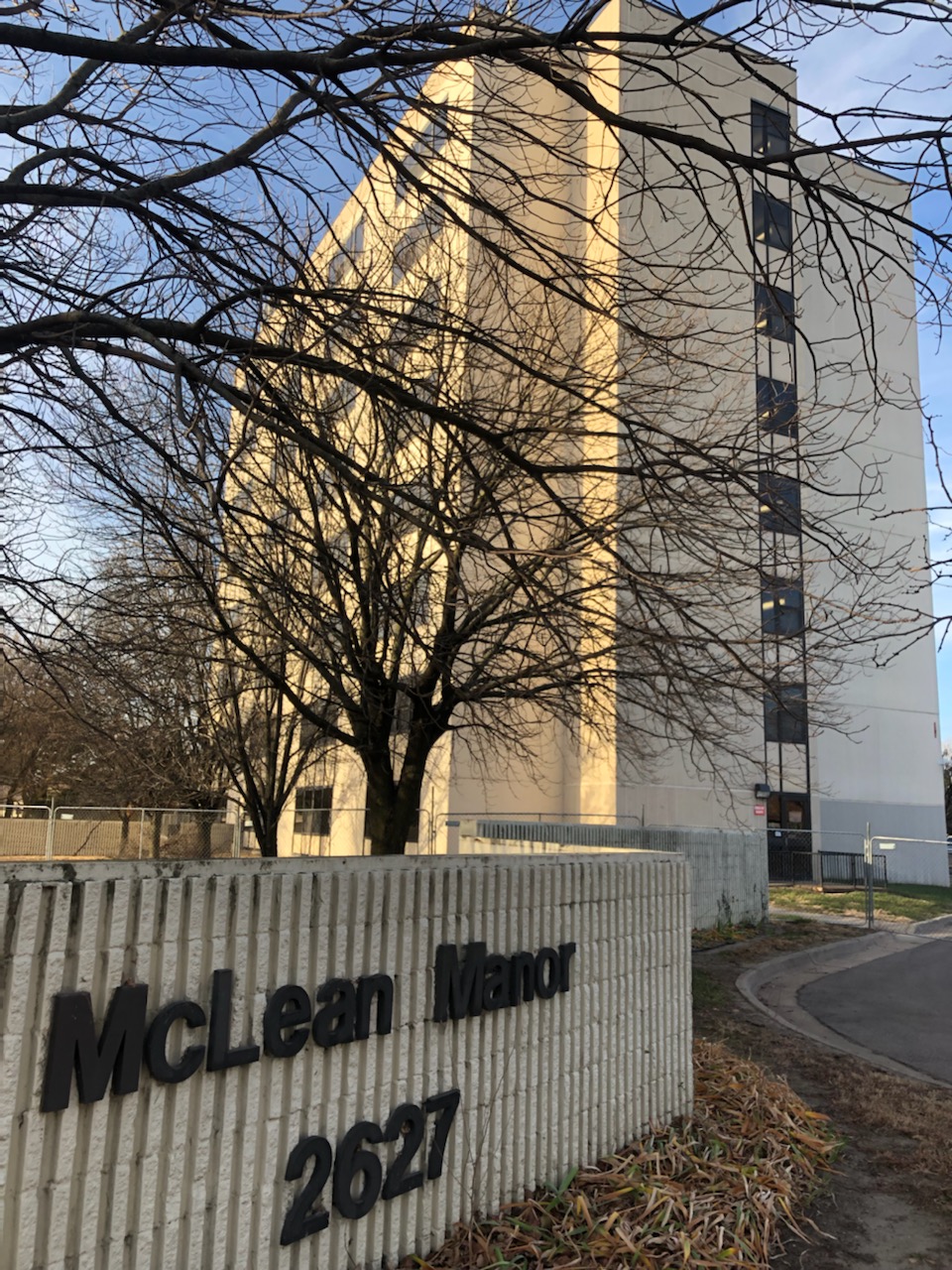After years of deferred maintenance and delayed capital improvements, low-income senior housing owned by the city of Wichita is undergoing major renovations. Plans also call for Mennonite Housing to take over management of the 226 units from the Wichita Housing Authority.
The four facilities to be improved are the 86-unit Greenway Manor, 315 N. Riverview; 90-unit McLean Manor, at 9th and McLean; 32-unit Rosa Gragg apartments, near 25th and Arkansas; and 18-unit Bernice Hutcherson apartments, 2020 N. Wellington Place.
According to the city, both the Greenway and McLean towers received inspection scores of 51 out of a possible 100 in 2019, with at least one life-threatening health and safety deficiency noted. The U.S. Department of Housing and Urban Development considers anything under 60 to be a failing score.
The other two facilities, which are comprised of duplexes, received scores of 78 last year, which means there were several areas of concern. Greenway and McLean were considered as one housing project for purposes of the inspection, as were Rosa Gragg and Hutcherson.
According to one city document, McLean has not been updated since it was built in 1982. Last year, a resident told a TV station that the building’s air condition system made it feel like “it’s about 100 (degrees) in here.”
City officials say Congress has not provided public housing authorities with enough money to keep up with needed property maintenance and rehabilitation.
“There’s a difference between cheap housing and affordable housing,” Sally Stang, the city’s director of housing and community service, said during an official groundbreaking for the renovations last month. “It needs to meet a level of quality, and unfortunately, Congress and the Department of Housing and Urban Development have underfunded public housing for decades.”
In 2107, the city applied and was accepted into the Federal Rental Assistance Demonstration (RAD) pilot program, which allows private sources of capital to be used renovating public housing.
The Wichita Housing Authority is using a combination of loans, grants and tax credits to pay for the project. The authority has entered a partnership with KBK Enterprises, an out-of-state company selected as the project developer in 2018. The city will retain ownership of the properties. The city is issuing up to $17.3 million in tax-exempt multifamily housing bonds to finance some costs of the work. Affordable Housing Partners, a Berkshire Hathaway company, has purchased low-income housing tax credits to provide equity for the project.
Total cost of the project is estimated at just under $36 million, of which actual construction costs total about $15 million.
Renovations include replacing all exterior doors, siding and trim, heating and air conditioning systems, electrical systems, elevators and the Greenway roof; installing new windows, water heaters, building lighting, plumbing and fixtures, kitchens and building fire alarm systems; modifying bathrooms to meet accessibility requirements; and enhancing meeting spaces and landscaping.
According to a city document, the renovations are to start on vacant units at Rosa Gragg and Hutcherson. After each construction phase, which is expected to take three to four months, residents will move into renovated units and work will start on newly vacated units. This pattern will continue until all the work is done.
Residents of McLean Manor were to be relocated to Greenway Manor during a 10-month construction period, then move back when the work is complete. Once that’s done, Greenway residents will be offered permanent relocation to any vacant unit at McLean, Gragg or Hutcherson, or will be temporarily housed in private housing during renovations. That project is also expected to take about 10 months, after which residents may return. The city is paying all costs of relocation.
Management and maintenance of the four properties will be transferred to Mennonite Housing, a nonprofit that’s been involved in housing since the 1970s, according to its website. Since 1991, Mennonite Housing has also operated a dozen senior apartment complexes such as Central Park, Country Acres and Finch Hollow. Under the RAD program, units become a Section 8 project and must remain affordable to low-income households. Rents should not be affected.
Initially, the city expected renovations to begin in 2018, but that date was pushed back as the original tax credit purchaser dropped out. The city also wanted to include 352 single-family homes that it owns in the RAD project, but it was not allowed to do so by HUD. About 20 of those have a senior head of household.












